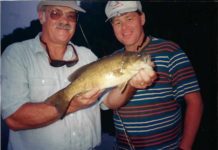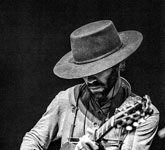Written by: B. Pierce, Montana Angler
There are myriad ways people discover fly fishing. Some aspiring anglers are fortunate enough to have a family member, spouse or friend who is an avid flyfisher. Others explore the sport on their own, learning knots and casting techniques from books and YouTube videos. Each method of introduction to fly fishing comes with its own merits. Picking the sport up with a close friend can help deepen bonds and set the stage for a lifetime of fly fishing adventures. A do-it-yourself learner can find true moments of satisfaction in their successes.
Another option is to employ the services of a fly-fishing guide. A guide can help flatten the learning curve and get you into fish. Whether you’re new to fly fishing and trying to master the fundamentals, or an experienced angler looking to be challenged by new water, hiring a fly-fishing guide is a worthwhile investment.
Here are some tips to consider when you book a fly fishing guide.
Expectations
A good guide will be quick to assess your abilities and make decisions to help you catch fish and enjoy your time on the water. Whether you’re a novice or someone who has been fishing for years, your guide understands what it means to be an angler. They’ve felt the frustrations of wind knots and sloppy casts, as well as the thrill of catching that first truly big fish.

When you first contact a guide service, fill them in on your experience level and desires for the day. This dialogue may begin with a phone call or an email inquiry. Share some background on the places you’ve fished and experiences you’ve had. If you’d like to float a particular river or do some wade fishing, let your guide know. If you want to fish dry flies to rising trout, learn how to get the hang of a basic fly cast, or see your son catch his first fish, be sure to accurately share your goals for a future trip.
A good guide is a jovial host who enjoys their work and spending time with other anglers. Often these initial conversations will spark a dialogue that carries onto the water, and occasionally forms a lasting friendship that provides years of memorable fishing adventures. If you share your goals and expectations, the guide service, shop, or lodge you select can do a better job of matching you with a fishing guide that will help you maximize your experience.
Experience
Fly-fishing guides are seasoned anglers who know the local waters in the region you’ll be fishing. They understand the insects that hatch on area rivers and know which streams are fishing best at different times of the year. Guides know the shelves and springs, pools and riffles where trout reside and can put you in the best places for success.
Once you’re on the water, your guide becomes a valuable partner in pursuit of your quarry. Your guide will suggest a setup for the conditions of the day. If there’s a good hatch or a significant terrestrial bite, your guide may suggest a dry-fly or hopper-dropper rig. If the fish are feeding subsurface, a streamer or nymph setup is called for. As conditions change, you may switch rigs or fishing methods, but you can be sure your guide is basing those decisions on their experience fishing the water you’re on.
It pays to be curious, so ask plenty of questions. Consider your guide’s expertise and experience a font of knowledge. You’ve got the entire day to tap the well and learn everything you can. Many guides have specific areas of the sport that they have more experience in. If you prefer wading to floating, try to find a guide that enjoys this particular mode of fishing. If you are targeting a specific fishery or region (maybe you have always wanted to fish the Madison or try Yellowstone Park), make sure to ask for a guide with a lot of experience in the area you hope to target.

Education
One of the fantastic things about fly fishing in Montana is that it makes it possible for you to learn and learn quickly. The state’s abundant trout populations on rivers like the Madison, Gallatin, and Yellowstone provide anglers lots of chances to encounter trout. With a guide along for the day, you are poised to maximize your opportunities to learn and carry those successes with you.
A big part of learning is trial and error. There isn’t an angler on the planet who picked up a fly rod and started catching fish consistently out of the gate. Whether you’re prone to an erratic backcast or are a little too eager and always pulling the fly away from a rising fish, your guide will have an answer.
Ask questions, lots of them. If there is a particular aspect of fly fishing you find challenging, lean on your guide for help. They’ve been there and can help you improve. Nothing feels better than a breakthrough. Whether it’s catching that first fish or learning the physics behind a double haul cast, your guide can get you there. If you are new to the sport and learning is high on your priority list make this known when you book your trip. Often some guides have a penchant for teaching or have teaching backgrounds and spend their summers guiding as a summer gig.
Safety
While fishing may seem like a rather safe pursuit, like all outdoor activities it does come with a degree of risk. Slippery rocks, wayward hooks, and fast water can lead to unforeseen mishaps. Fortunately, your guide will be with you every step of the way.
Montana fishing guides are required to have current first-aid certification; be familiar with the equipment, terrain, and hazards for the areas they guide; and be endorsed by an outfitter with a current Montana license, among other qualifications. Most Montana fly-fishing guides have years of experience at the oars and in the backcountry. They’ve learned to assess and mitigate risks on the water before an accident happens, and are equipped to deal with a situation if it arises.
Additionally, when it comes to safety issues that may be local, it helps that guides are tied in to a tight community. Word spreads quickly about hazards on rivers, such as downed trees and tricky rapids. You can rest easy knowing that your guide and other guides on the river are looking out first and foremost for your safety. When you book your trip, make sure that you are with a licensed guide. If you are in a state that doesn’t require licensure ask what type of equipment they have if an emergency should arise.

Success
In Montana, there are days that are so beautiful you could sit back and enjoy the views and scarcely think about fishing. There are days when the wind blows and the rains fall and you fish hard all day long without a bite. And there are those lucky days when it seems like you can’t keep the fish from your hook.
For most anglers, it come down to one fish . . . any fish. Sometimes that’s all you really want. With Montana’s abundant opportunities, you’re likely to have some success early on. While no guide is going to guarantee you a trout, most will find you a fish, even in the toughest conditions, and hopefully a bunch more. It is also important to understand that Montana’s diverse fisheries vary dramatically in fish counts and in “catchability” of the trout within them.
Whether you are visiting Montana for the fly fishing trip of lifetime or coming back for your 20th time, hiring a guide is a good way to get that one fish to the net that makes your adventure memorable. When you book a guide, it is worth asking what a successful day might look like. This is a good way to determine what you might expect with a specific guide or at a specific fishery. Fishing can be tough anywhere, but in some locations a great day might be 3 or 4 nice trout and in others it might be 25 trout. Ask what a successful day might look like and compare that to the vision you have to see if it is a match.
B. Pierce writes often for Montana Angler, an Orvis-Endorsed Fly-Fishing Expedition in Bozeman, Montana.

Credit: Source link






























